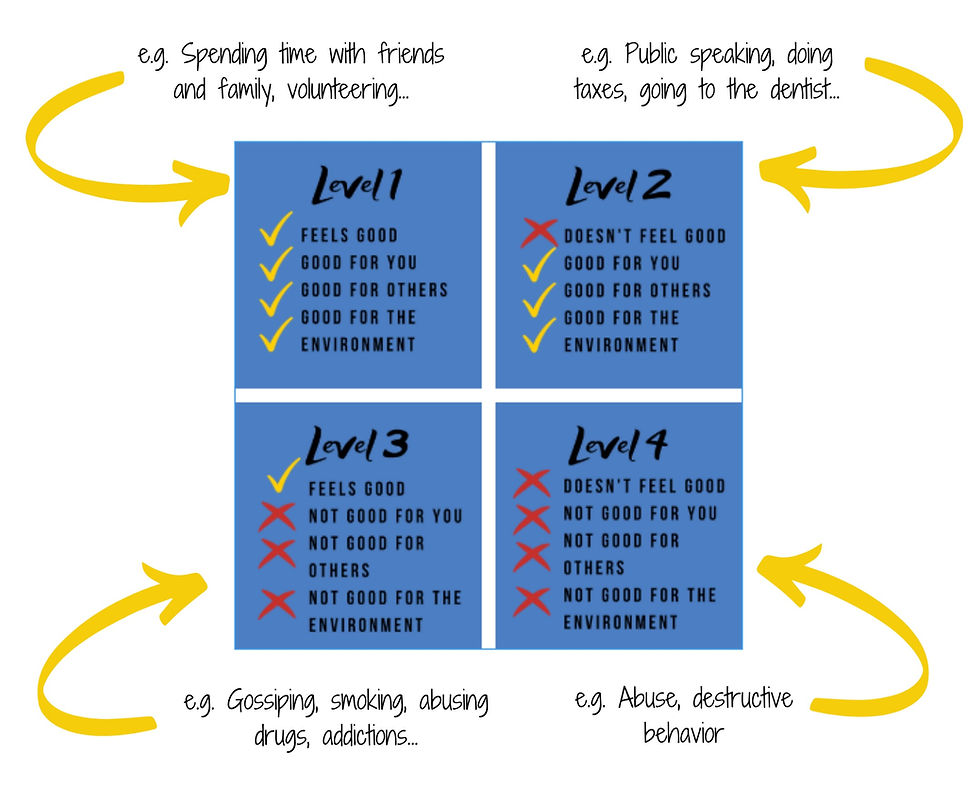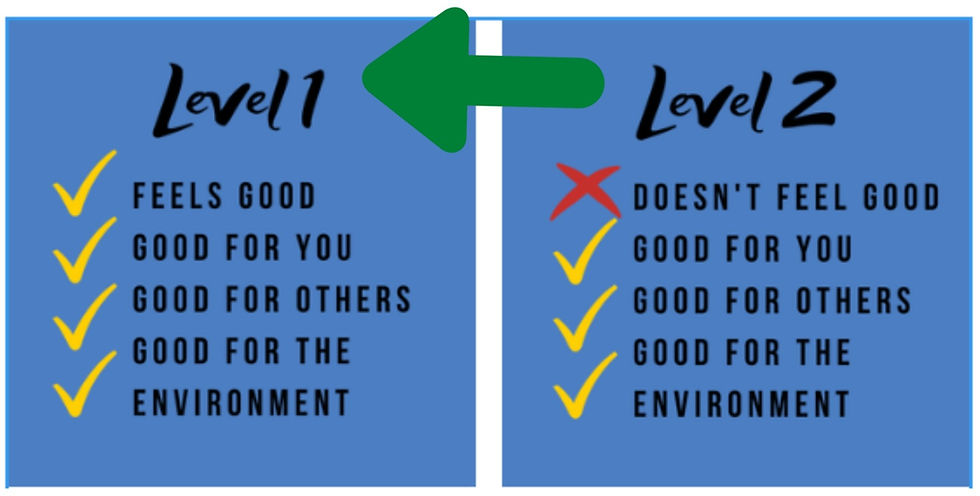The power of the "growth mindset"
- Felicity Neeson

- Jul 12, 2020
- 5 min read
Updated: Jul 14, 2020
A few weeks ago, I was called in as a casual relief teacher to teach year eight maths. Now, I’m not a maths teacher, but I have always enjoyed the process of learning the steps and finding a solution. The fact that I know a solution exists, encourages me to stick with it. Early on in the class, it became clear that many of the students had a rigid belief that “maths is hard”, and that they couldn’t do it, which quashed any curiosity or interest in learning the technique. For some of them, it was a badge of honour, declaring their identity: “I’m not a maths person.” It saddened me to think of what led them to develop this attitude. It also reinforced for me that education is as much about building confidence and a love of learning as it is about imparting content.
I truly believe that a large proportion of learning is down to mindset. Whatever we believe and tell ourselves about our abilities, we’re right. Our mindset determines to what extent we will allow ourselves to dream and achieve.

In her book “Mindset: The New Psychology of Success”, Carol S. Dweck writes about the difference between fixed and growth mindsets. Individuals with a fixed mindset hold the belief that things are “just the way they are”, and aren’t open to change. Conversely, individuals with a growth mindset persevere through set-backs and don’t define themselves by their failures. Unfortunately, fostering a growth mindset in children is not as simple as showering them with praise. Dweck writes about the dangers of praising children and how it can affect their confidence:
“After seven experiments with hundreds of children, we had some of the clearest findings I’ve ever seen: Praising children’s intelligence harms their motivation and it harms their performance. How can that be? Don’t children love to be praised? Yes, children love praise. And they especially love to be praised for their intelligence and talent. It really does give them a boost, a special glow—but only for the moment. The minute they hit a snag, their confidence goes out the window and their motivation hits rock bottom. If success means they’re smart, then failure means they’re dumb. That’s the fixed mindset.”
Instead of praise, Dweck recommends fostering a love of learning in children. “If parents want to give their children a gift, the best thing they can do is to teach their children to love challenges, be intrigued by mistakes, enjoy effort, and keep on learning. That way, their children don’t have to be slaves of praise. They will have a lifelong way to build and repair their own confidence.”
When I was studying teaching, we were taught to reward effort, rather than behavior. For some students, particularly from families experiencing disadvantage, just turning up to class on time and wearing their school uniform is a huge achievement. However, it is often other students who receive the lion’s share of praise in the classroom. The students who get straight A’s, answer questions and listen respectfully.
What is your threshold when it comes to ‘giving up’? For example, if your printer started playing up, would you tinker around with it? Or turn to Google? Would you call a friend who is “handy”? Or pay a professional? Or maybe just put up with it, resigning yourself to a printer-free life? Growing up as the youngest, I have had to consciously work on my growth mindset. I have a strong tendency to defer to others to fix things, just like my older siblings would look after me as a child.

Have you ever taken yourself out of the running before you’ve even had a go? When I was at high school (an all girls’ college), so many students would ‘accidentally’ schedule appointments for the dentist/orthodontist/doctor on school sports days, that the teachers started advertising the dates in advance and specifically requesting parents avoided them when booking appointments. Society conditioning and expectations definitely play a role here too. Things are getting better, but I definitely still hear plenty of comments about trades being “men’s work” and domestic duties being for women. I have recently moved house, and was impressed when one of my female friends brought along a toolkit to help assemble our new furniture. I immediately berated myself for having that reaction, and playing into stereotypes.
If something being ‘hard’ is our reason for not doing it, then we will cut ourselves off from growth. Most things are hard the first time we try them. Often I’ll tell myself, “It’s not hard, it’s unfamiliar”.
Tony Robbins talks about the four different types of experiences:

Many people spend all of their time in Levels 1 and 3, doing things that feel good. I don’t blame them – I wouldn’t want to intentionally put myself in a painful situation either! The danger of spending all our time only doing things that feel good is that eventually they may start to lose some of their original joy, and the experiences will shift.

Our brains are always growing, and they thrive with stimulation. If we want to grow and develop, we should spend the majority of our time in Level 2. I am finding that I am currently spending a lot of time in this level as I work with Michael to develop Yellow Arrow. There is so much to learn, and sometimes my brain feels full to bursting! However, the great thing about spending time in Level 2, is that eventually those experiences will shift to Level 1. The first time I gave a speech was terrifying. Every subsequent speech was a little easier until now public speaking is a joy for me. It is the same for everything.

Next time you have the thought “I can’t do this”, I invite you to challenge that limitation. Where is it coming from? Is it warranted? Have you really tried? I’m not advocating for everyone to put themselves in dangerous situations where they aren’t qualified or to act inappropriately; rather I’m keen for people to back themselves and embrace their awesomeness. Remember the story of the “4 minute mile”. On May 6 1954, Roger Bannister ran a mile in three minutes and 59 seconds. Prior to this achievement, this feat was thought to be impossible. Just two months later, another runner broke the record and it has been broken over one thousand times since then. The knowledge that is was possible, made all the difference.
"Life isn't about finding yourself. Life is about creating yourself." - George Bernard Shaw
Image credits:
Cover photo by Kristopher Roller on Unsplash
Student photo by Taylor Wilcox on Unsplash



Comments